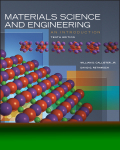
Materials Science And Engineering
10th Edition
ISBN: 9781119405498
Author: Callister, William D., Jr, RETHWISCH, David G., Jr., 1940- Author.
Publisher: Wiley,
expand_more
expand_more
format_list_bulleted
Question
Chapter 3, Problem 39QAP
To determine
Convert the
Expert Solution & Answer
Want to see the full answer?
Check out a sample textbook solution
Students have asked these similar questions
Problem 14: Determine the reactions at the pin A, and the tension in cord. Neglect the
thickness of the beam.
F1=26kN
F2
13
12
80°
-2m
3m
Problem 22: Determine the force in members GF, FC, and CD of the bridge truss and state
if the members are in tension or compression.
F
15 ft
B
D
-40 ft
40 ft
-40 ft
40 ft-
5 k
10 k
15 k
30 ft
E
Problem 20: Determine the force in members BC, HC, and HG. After the truss is sectioned
use a single equation of equilibrium for the calculation of each force. State if the members
are in tension or compression.
5 kN
4 kN
4 kN
3 kN
2 kN
B
D
E
F
3 m
-5 m-
-5 m-
5 m
5 m-
Chapter 3 Solutions
Materials Science And Engineering
Ch. 3 - Prob. 1QAPCh. 3 - Prob. 2QAPCh. 3 - Prob. 3QAPCh. 3 - Prob. 4QAPCh. 3 - Prob. 5QAPCh. 3 - Prob. 6QAPCh. 3 - Prob. 7QAPCh. 3 - Prob. 8QAPCh. 3 - Prob. 9QAPCh. 3 - Prob. 10QAP
Ch. 3 - Prob. 11QAPCh. 3 - Prob. 12QAPCh. 3 - Prob. 14QAPCh. 3 - Prob. 15QAPCh. 3 - Prob. 16QAPCh. 3 - Prob. 17QAPCh. 3 - Prob. 19QAPCh. 3 - Prob. 20QAPCh. 3 - Prob. 21QAPCh. 3 - Prob. 23QAPCh. 3 - Prob. 24QAPCh. 3 - Prob. 25QAPCh. 3 - Prob. 26QAPCh. 3 - Prob. 27QAPCh. 3 - Prob. 28QAPCh. 3 - Prob. 29QAPCh. 3 - Prob. 34QAPCh. 3 - Prob. 35QAPCh. 3 - Prob. 36QAPCh. 3 - Prob. 37QAPCh. 3 - Prob. 39QAPCh. 3 - Prob. 40QAPCh. 3 - Prob. 41QAPCh. 3 - Prob. 43QAPCh. 3 - Prob. 44QAPCh. 3 - Prob. 45QAPCh. 3 - Prob. 46QAPCh. 3 - Prob. 47QAPCh. 3 - Prob. 48QAPCh. 3 - Prob. 49QAPCh. 3 - Prob. 50QAPCh. 3 - Prob. 51QAPCh. 3 - Prob. 52QAPCh. 3 - Prob. 53QAPCh. 3 - Prob. 59QAPCh. 3 - Prob. 60QAPCh. 3 - Prob. 61QAPCh. 3 - Prob. 62QAPCh. 3 - Prob. 63QAPCh. 3 - Prob. 64QAPCh. 3 - Prob. 65QAPCh. 3 - Prob. 66QAPCh. 3 - Prob. 67QAPCh. 3 - Prob. 68QAPCh. 3 - Prob. 69QAPCh. 3 - Prob. 72QAPCh. 3 - Prob. 1SSPCh. 3 - Prob. 1FEQPCh. 3 - Prob. 2FEQPCh. 3 - Prob. 3FEQP
Knowledge Booster
Similar questions
- An experimental setup is being built to study the flow in a large water main (i.e., a large pipe). The water main is expected to convey a discharge (Qp). The experimental tube will be built at a length scale of 1/20 of the actual water main. After building the experimental setup, the pressure drop per unit length in the model tube (APm/Lm) is measured. Problem (19): Given the value of Qp [m³/s], and assuming Reynolds number similitude between the water main and experimental tube, calculate the flow rate in the model tube (Qm) in [lit/s]. = 30.015 m^3/sarrow_forwardProblem 11: The lamp has a weight of 15 lb and is supported by the six cords connected together as shown. Determine the tension in each cord and the angle 0 for equilibrium. Cord BC is horizontal. E 30° B 60° Aarrow_forwardProblem 10: If the bucket weighs 50 lb, determine the tension developed in each of the wires. B $30° 5 E D 130°arrow_forward
- Problem 3: Four-Force Equilibrium Knowing the forces in members A and C, determine the force of B and D, assuming the system is in equilibrium. A structural joint is held in equilibrium by four forces acting along different members. • Member A applies a force of 4 kN at an angle of 60° above the positive x-axis. • Member C applies a force of 2 kN horizontally to the left along the x-axis. • Member B applies an unknown force along the horizontal direction. • Member D applies an unknown force at an angle of 45° above the negative x-axis. Determine the forces in members B and D, assuming the system is in static equilibrium. 4 kN 2 kN C 45° A D 60° FB Barrow_forwardProblem 18: Determine the force in each member of the truss. State if the members are in tension or compression. 3 ft 3 ft 3 ft B D 4 ft 4 ft. 130 lb Earrow_forwardProblem 16: Determine the force in each of the member of the truss and state if the members are in tension or compression. Set P₁ = 10 kN, P2 = 8 kN. 2 m G F E A A 1 m B 2 m 1 m P1 Darrow_forward
- Problem 1: Two-Force Equilibrium A 12 kg traffic light is suspended by two cables attached to a ceiling. Determine the force in Cable 1 (AB) and Cable 2 (AC). In other words, determine the tension in each cable, assuming the system is in static equilibrium. Barrow_forwardProblem 7: Determine the force in each cord for equilibrium of the 60-kg bucket. D E 4 m 4 m B 3 m- 3 m- 3 m.arrow_forwardProblem 15: Determine the reactions at the pin A and the tension in cord BC. Set F = 40 kN. Neglect the thickness of the beam. 26 kN F 13 12 -2 m 4 m B 4arrow_forward
- If the Z-axis changes, what is the effect A circularly polarized wave, traveling in the +z-direction, is received by an elliptically polarized antenna whose reception characteristics near the main lobe are given approx- imately by E₁ = (2â, + jâ] f(r. 8. d) Find the polarization loss factor PLF (dimensionless and in dB) when the incident wave is (a) right-hand (CW) (b) left-hand (CCW) An elliptically polarized wave traveling in the negative z-direction is received by a circularly polarized antenna. The vector describing the polarization of the incident wave is given by Ei= 2ax + jay .Find the polarization loss factor PLF (dimensionless and in dB) when the wave that would be transmitted by the antenna is (a) right-hand CP (b) left-hand CP.arrow_forwardMedium 1 is a lossless dielectric (ε₁=ε,ε, μ₁=μ₁, σ₁=0) Medium 2 is a lossless dielectric (ε=&&₂, μ=μ₁, σ₁=0) [бг Мо о = = 0] [2 Mo σ₂ = 0] E₁ (z) = Ele² + Пe+jB₁²] E2 (z) = E Te² and tot = constant 1. For the case εr1 = 1, &r2= 16, E₁x=1 V/m and a frequency f = 750 MHz determine: λι = n₁ = 22 = n2= r = T= 2. The magnitude |E1 tot (z)| will show an interference pattern in region 1 as: E˜(z)=E,{1+Te®®]e¯MS =E||{1+Te^^^^\]e=##} | = |E|+Texp(j) For an incident field E₁x=1 V/m SKETCH the magnitude of E1 tot (z)| and |E20 (z) on the graph below. Plot the values at 2/4 increments and sketch between. What is the SWR?arrow_forwardProblem 21: Determine the force in members EF, CF, and BC and state if the members are in tension or compression. 1.5 m 4 kN E D 8 kN B 2 m 2 marrow_forward
arrow_back_ios
SEE MORE QUESTIONS
arrow_forward_ios
Recommended textbooks for you
 MATLAB: An Introduction with ApplicationsEngineeringISBN:9781119256830Author:Amos GilatPublisher:John Wiley & Sons Inc
MATLAB: An Introduction with ApplicationsEngineeringISBN:9781119256830Author:Amos GilatPublisher:John Wiley & Sons Inc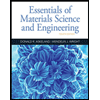 Essentials Of Materials Science And EngineeringEngineeringISBN:9781337385497Author:WRIGHT, Wendelin J.Publisher:Cengage,
Essentials Of Materials Science And EngineeringEngineeringISBN:9781337385497Author:WRIGHT, Wendelin J.Publisher:Cengage,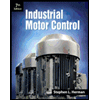 Industrial Motor ControlEngineeringISBN:9781133691808Author:Stephen HermanPublisher:Cengage Learning
Industrial Motor ControlEngineeringISBN:9781133691808Author:Stephen HermanPublisher:Cengage Learning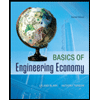 Basics Of Engineering EconomyEngineeringISBN:9780073376356Author:Leland Blank, Anthony TarquinPublisher:MCGRAW-HILL HIGHER EDUCATION
Basics Of Engineering EconomyEngineeringISBN:9780073376356Author:Leland Blank, Anthony TarquinPublisher:MCGRAW-HILL HIGHER EDUCATION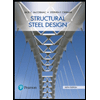 Structural Steel Design (6th Edition)EngineeringISBN:9780134589657Author:Jack C. McCormac, Stephen F. CsernakPublisher:PEARSON
Structural Steel Design (6th Edition)EngineeringISBN:9780134589657Author:Jack C. McCormac, Stephen F. CsernakPublisher:PEARSON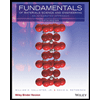 Fundamentals of Materials Science and Engineering...EngineeringISBN:9781119175483Author:William D. Callister Jr., David G. RethwischPublisher:WILEY
Fundamentals of Materials Science and Engineering...EngineeringISBN:9781119175483Author:William D. Callister Jr., David G. RethwischPublisher:WILEY

MATLAB: An Introduction with Applications
Engineering
ISBN:9781119256830
Author:Amos Gilat
Publisher:John Wiley & Sons Inc

Essentials Of Materials Science And Engineering
Engineering
ISBN:9781337385497
Author:WRIGHT, Wendelin J.
Publisher:Cengage,

Industrial Motor Control
Engineering
ISBN:9781133691808
Author:Stephen Herman
Publisher:Cengage Learning

Basics Of Engineering Economy
Engineering
ISBN:9780073376356
Author:Leland Blank, Anthony Tarquin
Publisher:MCGRAW-HILL HIGHER EDUCATION

Structural Steel Design (6th Edition)
Engineering
ISBN:9780134589657
Author:Jack C. McCormac, Stephen F. Csernak
Publisher:PEARSON

Fundamentals of Materials Science and Engineering...
Engineering
ISBN:9781119175483
Author:William D. Callister Jr., David G. Rethwisch
Publisher:WILEY